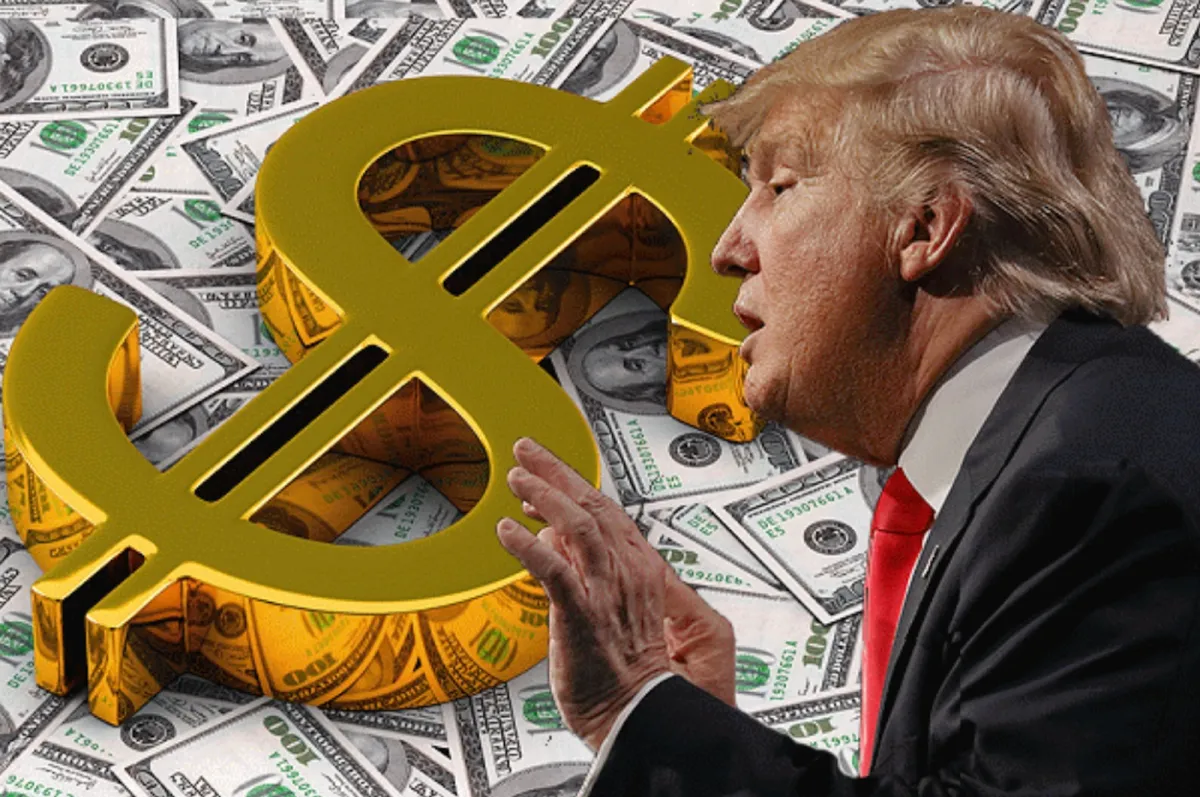
Former President Donald Trump recently made headlines with his statement on the U.S. dollar, which has sparked a fresh wave of discussion about the future of the American economy. Trump’s remarks touched on a range of economic issues, from currency strength to international trade. But what exactly did he say, and what are the potential implications for both the U.S. and global economies?
The Statement: A Closer Look on Trump’s Announcement
In a recent public appearance, Trump expressed concerns about the strength of the U.S. dollar. He suggested that the current value of the dollar is detrimental to American businesses and manufacturers. Trump’s statement indicated that he believes the dollar’s high value is making U.S. exports more expensive and less competitive on the global market. This, in turn, could harm American jobs and economic growth.
Implications for U.S. Trade and Economy
- Impact on Exports: A strong dollar means that U.S. goods and services become more expensive for foreign buyers. This can lead to a decrease in exports, which is particularly problematic for industries that rely heavily on international sales. For example, American farmers, manufacturers, and technology companies might find their products less competitive abroad, potentially leading to reduced revenues and job losses.
- Inflation and Purchasing Power: On the flip side, a strong dollar can be beneficial for American consumers. It makes imports cheaper, which can help keep inflation in check and increase the purchasing power of U.S. residents. Consumers can buy more foreign goods and services, which might lead to a better quality of life and increased variety in the marketplace.
- International Relations: Trump’s statement also touches on broader geopolitical implications. The strength of the U.S. dollar can influence international economic relations. Countries that hold significant amounts of dollar reserves might feel pressure to adjust their own economic strategies. Additionally, if other nations perceive the U.S. as manipulating its currency, it could lead to tensions or trade disputes.
Historical Context and Economic Theory
To fully understand the impact of Trump’s statement, it’s useful to look at historical context. Previous administrations have also wrestled with the issue of currency valuation. For instance, during the 1980s, the Plaza Accord was an agreement among major economies to depreciate the U.S. dollar to help correct trade imbalances.
Economic theory suggests that the value of a currency is influenced by a complex interplay of factors, including interest rates, inflation, and overall economic stability. While a strong dollar can have drawbacks, such as making exports more expensive, it also signals a robust and stable economy, which can attract foreign investment.
Potential Policy Responses
If Trump’s concerns lead to policy changes, we might see efforts to address the dollar’s value through various mechanisms:
- Monetary Policy Adjustments: The Federal Reserve could alter interest rates or engage in other monetary policies to influence the dollar’s value. Lower interest rates can reduce the dollar’s strength, potentially making exports more competitive.
- Trade Agreements: The U.S. might negotiate new trade agreements or amend existing ones to better balance trade and address the impacts of a strong dollar on American businesses.
- Fiscal Stimulus: Government spending and fiscal policy adjustments could also play a role in addressing the economic impacts of a strong dollar. Increased investment in infrastructure and other sectors could help mitigate some of the negative effects on employment and growth.
Looking ahead
rump’s statement on the dollar highlights ongoing debates about the best approach to managing the U.S. economy in a complex global landscape. While a strong dollar has its benefits, it also presents challenges that need to be addressed carefully. As policymakers and economists weigh the implications, it’s crucial to consider both short-term impacts and long-term strategies for economic stability and growth.
In conclusion, Trump’s remarks serve as a reminder of the delicate balance required in economic policy and the significant role that currency value plays in shaping international trade and economic dynamics. As discussions continue, it will be important for all stakeholders to stay informed and engaged in finding solutions that promote a healthy and competitive economy.
